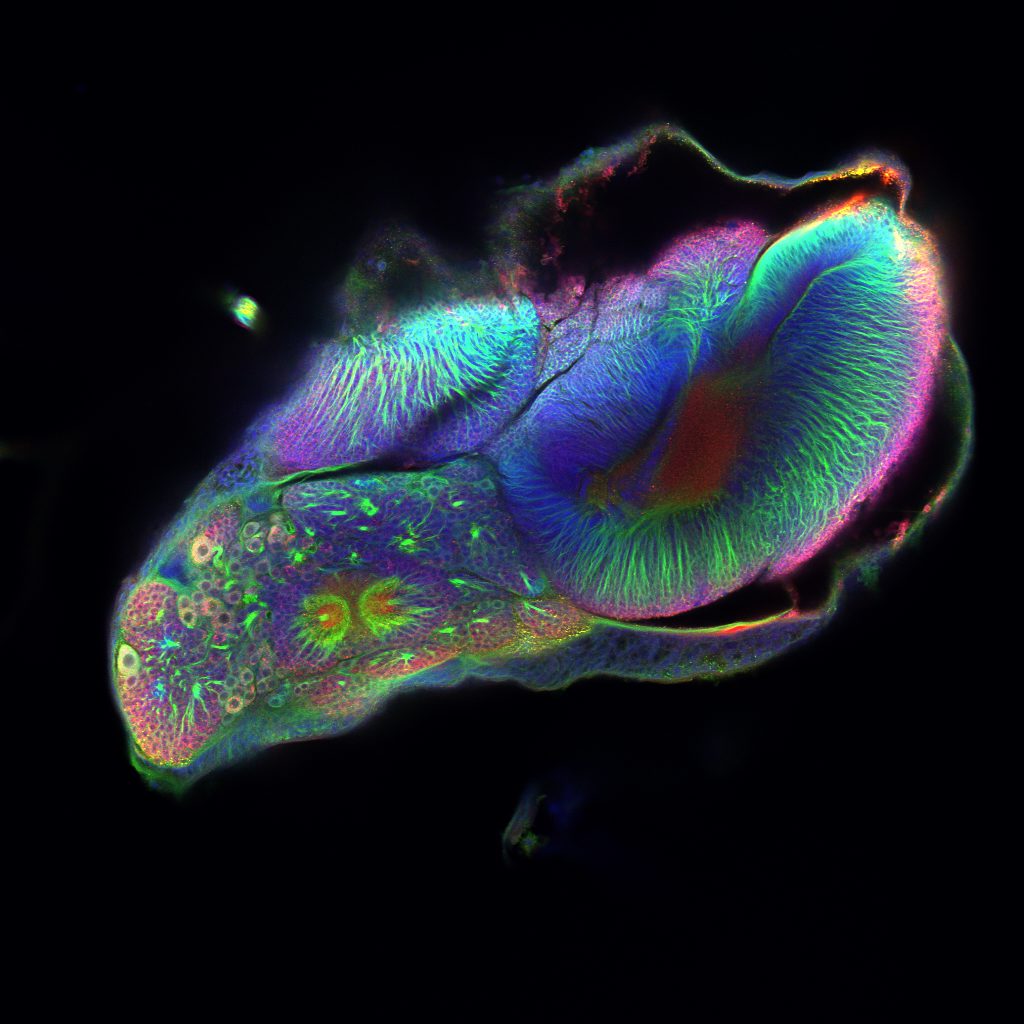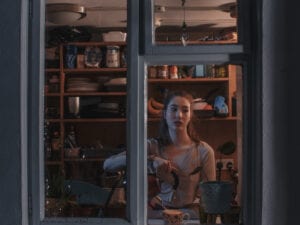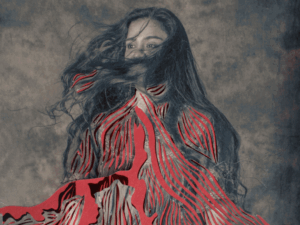The announcement of the Top 25 for the Wellcome Photography Prize 2025 is a significant moment in the cultural calendar. This prize is a powerful platform that reframes how we see health, science and human experience. In a world saturated with information, visual storytelling has the power to cut through noise and evoke understanding on a deeper, more emotional level. The Wellcome Photography Prize, now in its 28th year, continues to lead this charge. It reminds us that photography can offer more than documentation – it can provoke empathy, shift perceptions and confront the complexities of modern life.
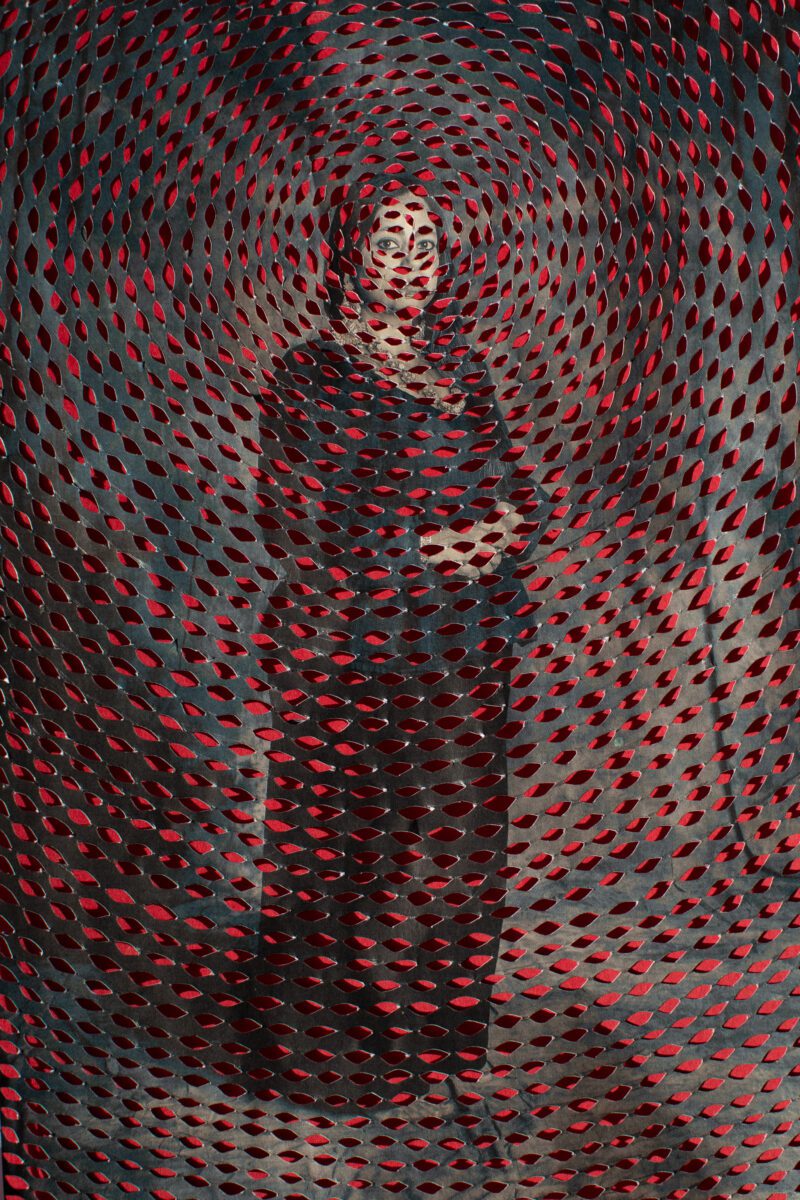
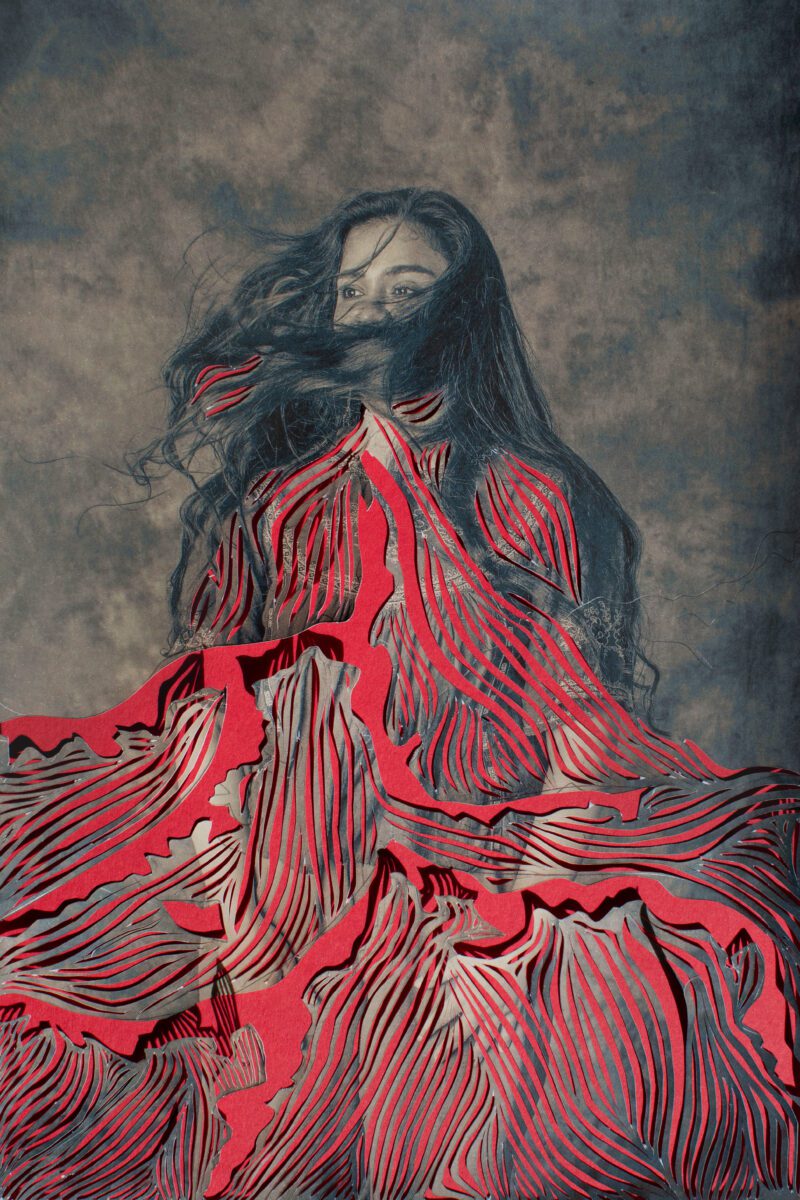
At Aesthetica, we believe in the power of visual language to communicate urgent issues and to support new and emerging voices. As organisers of the Aesthetica Art Prize, we understand how vital these platforms are in shaping future conversations. The Wellcome Photography Prize exemplifies this mission, bringing together voices from across disciplines and geographies to reflect on our shared vulnerabilities. With entries from over 100 countries, this year’s shortlist spans 18 nations, from Bangladesh and Brazil to Uganda and the UK. These are not just beautiful images – they are urgent, thoughtful and deeply human perspectives on what it means to live, survive and adapt in a rapidly changing world.
This year’s judging panel comprises some of the most influential figures across science, journalism and photography. Chaired by Melanie Keen, Director of Wellcome Collection, the panel includes Esmita Charani, Associate Professor at the University of Cape Town, and Helen Fisher, Professor of Developmental Psychopathology at King’s College London. Other judges are Noah Green of Beautiful Biology, Guardian picture editor Caroline Hunter, and climate leader Elizabeth Wathuti, alongside photographer Daniella Zalcman and journalist Benjamin Ryan. Their collective insight underscores the prize’s interdisciplinary approach and its deep engagement with contemporary health narratives.
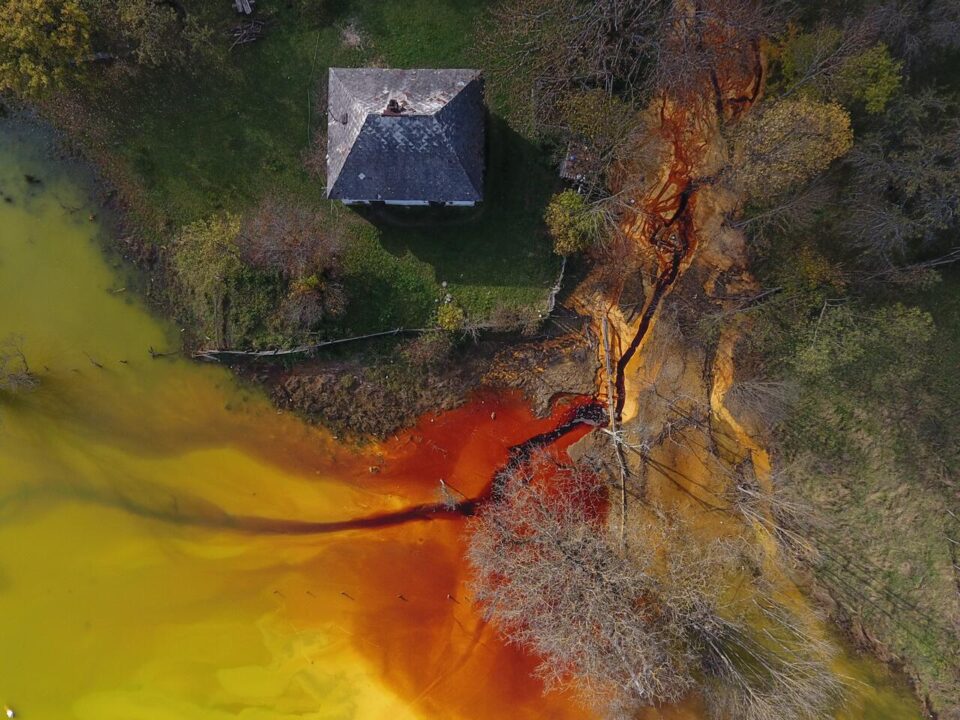
This year’s three winners are: Mithail Afrige Chowdhury, Steve Gschmeissner and Sujata Setia. Chowdhury’s image, Urban Travel, depicts a mother and daughter having a rooftop picnic in Dhaka. There are only a few parks left in the city due to rapid urbanisation, so this staged moment – a simple attempt to give a child a taste of nature – becomes an act of creativity amidst the reality of climate migration. Cholesterol in the Liver, by Gschmeissner, meanwhile, shows life-threatening formations inside cells. Finally, Setia’s A Thousand Cuts, also shortlisted for the Aesthetica Art Prize 2025, is a deeply collaborative portrait project developed with survivors of domestic abuse within South Asian communities.
The themes of the wider 2025 shortlist range from the poetic to the political, from the microscopic to the planetary. Madeleine Waller’s portraits of her mother in I Spend 150 Hours Alone Each Week are quietly devastating, speaking to the loneliness of later life with remarkable tenderness. Georgie Wileman’s Self, Five Years On is a confronting self-portrait that lays bare the physical aftermath of endometriosis, highlighting a condition that remains chronically underfunded. In Transparent Curtains, Oded Wagenstein captures the grief and isolation of Mordechai Zilberman, an elderly man concealing his sexuality in a care home after the death of his partner. These images are not only visually arresting but emotionally resonant, inviting viewers to engage with stories that are often overlooked or silenced.
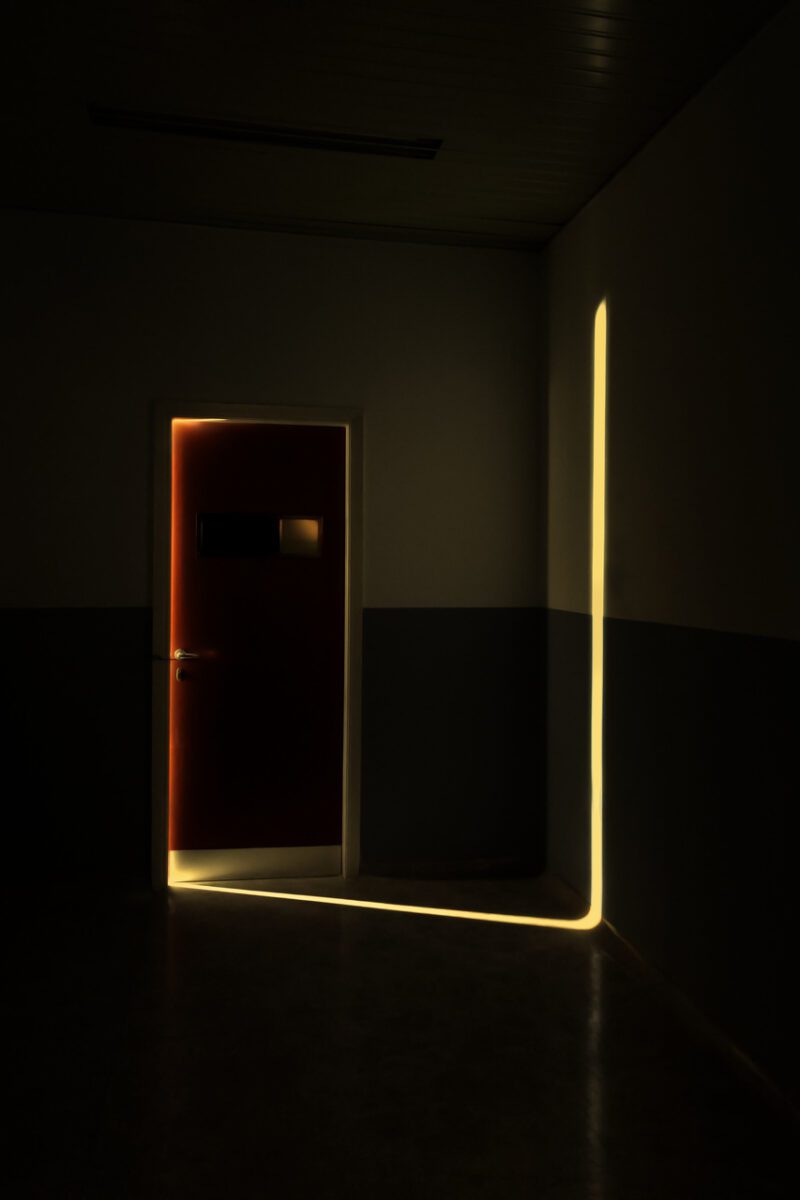
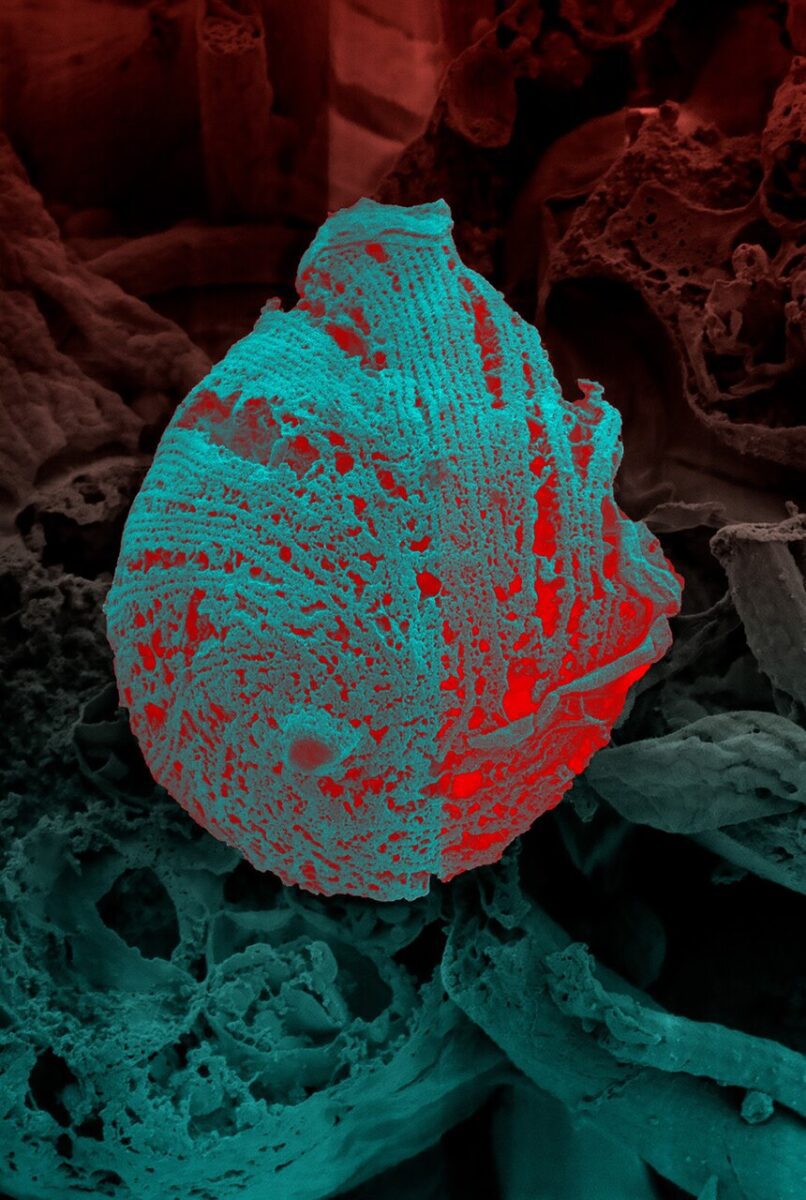
The prize also addresses health through the lens of climate change, disability and social justice. Ciril Jazbec’s A Dream to Cure Water shows how Indigenous farmers in the Peruvian Andes are blending ancestral knowledge with science to filter contaminated water. Alexandru Radu Popescu’s Beautiful Disaster presents a haunting aerial view of a toxic lake in Romania, both surreal and tragic in its beauty. These stories foreground resilience and innovation, demonstrating how local knowledge and personal strength become vital tools for survival. They also remind us that climate and health are inseparable.
A powerful sense of intimacy and subjectivity runs throughout the shortlisted works. Muir Vidler’s Stereo EEG Self-Portrait shows the artist mid-treatment for epilepsy, electrodes trailing from his scalp. It is clinical, yet deeply vulnerable. Dora Grivopoulou’s The Light Will Come offers a glimmer of hope from inside a former psychiatric hospital, where coloured light piercing through a door becomes a metaphor for emotional healing. Nancy Borowick’s The Loss Mother’s Stone gives space to mothers who have experienced stillbirth, photographing them alongside symbolic objects that speak to their grief and love. These images do not offer resolution, but they do create space for reflection, care and connection.
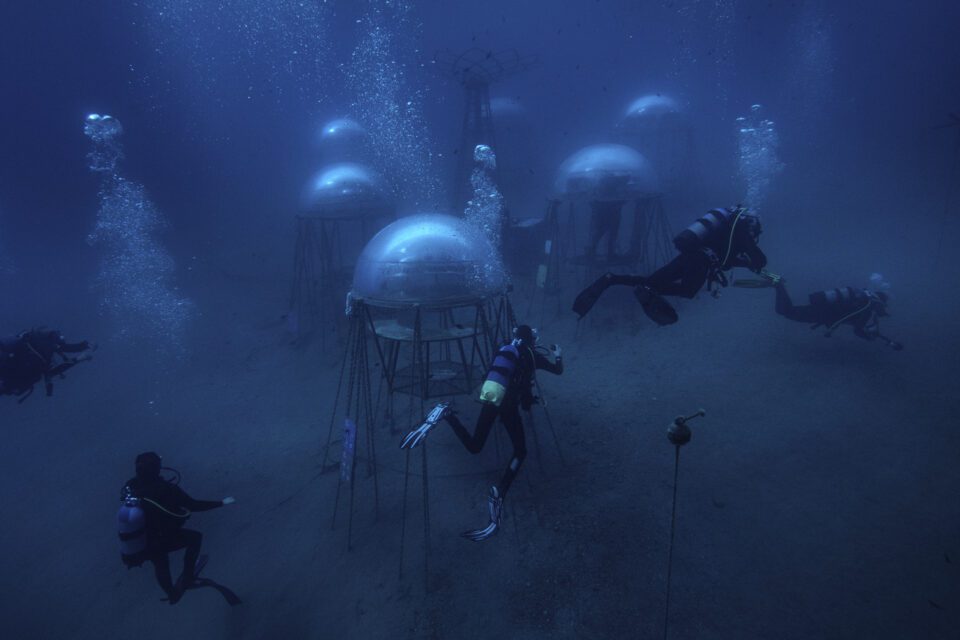
There’s also the return of the Biomedical Imaging category, continuing the legacy of the Wellcome Image Awards (1997-2018). These images, created in labs and research institutions, provide glimpses into invisible worlds. In Microplastics in Mammalian Tissue, Stephen Patrick and Olumide Ogunlade use a photoacoustic laser to capture plastic particles beneath skin – a visual warning of the pervasiveness of pollution. Organoids by Oliver Meckes and Nicole Ottawa, meanwhile, presents lab-grown uterine tissue.
The exhibition, open from 17 July to 18 October at the Francis Crick Institute in London, will also feature Things We Left Unseen, a participatory project by Cape Town-based Eh!woza. Developed with young people from the township of Khayelitsha, this body of work explores mental health, sanitation, water access and daily life through the lens of youth-led storytelling. Their photographs and personal texts bring a grassroots perspective to issues that are often viewed from the top down. They show that health is not just about medicine – it is about dignity, equity and representation. These contributions amplify new voices and signal where the next generation of creative and scientific thinkers are headed.
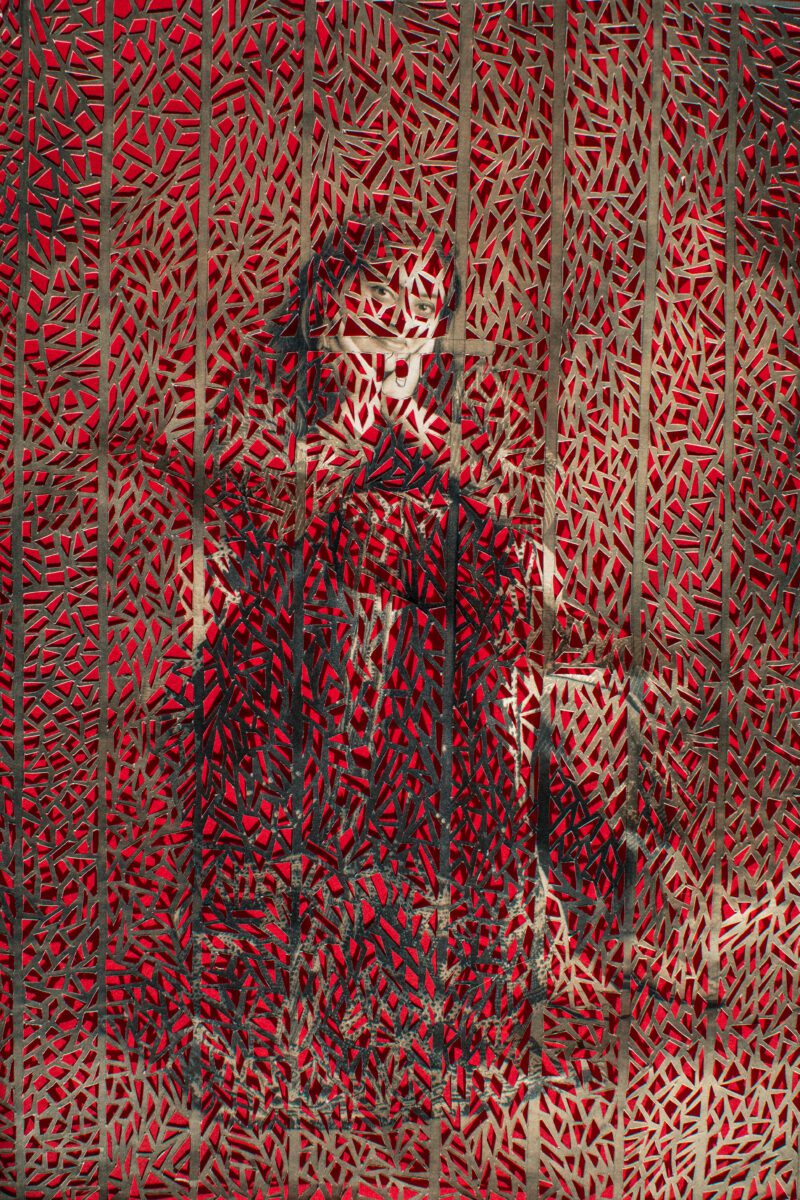
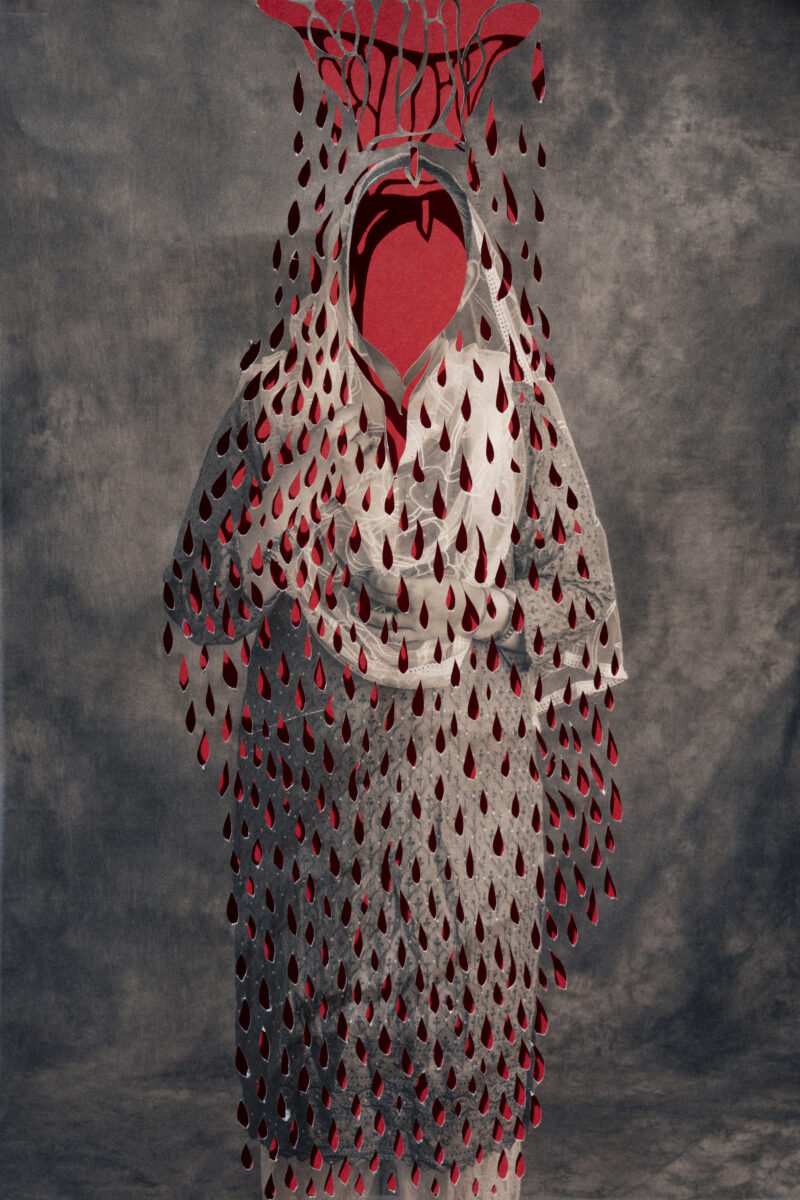
At Aesthetica, we recognise that prizes like Wellcome’s are essential cultural markers. They validate the work of artists and photographers while opening up complex topics to public conversation. By bridging the worlds of science and art, the Wellcome Photography Prize is helping to redefine how we understand health – not only as a physical condition but as a lived, emotional and societal experience. It is a space for discovery, activism and compassion, where the camera becomes a tool for change. The shortlisted works challenge us to think differently, and that challenge feels increasingly urgent.
The Wellcome Photography Prize plays a vital role in amplifying voices that are often marginalised, fostering greater understanding around global health issues and offering new ways to engage with science through image-making. By celebrating photographers who bring empathy and insight to subjects ranging from climate change to chronic illness, Wellcome is helping to shape a more inclusive and informed visual culture. These artists are not only documenting the present moment – but they are also provoking vital conversations about the future. Through their work, we are invited to see what might otherwise remain hidden, and to care more deeply about the world we share.
The Wellcome Photography Prize 2025 Exhibition
17 July – 18 October 2025 | wellcome.org
Words: Shirley Stevenson
Image Credits:
1. ‘From butterflies to humans’, 2023 By Amaia Alcalde Anton Courtesy of Wellcome Photography Prize 2025
2. ‘A thousand cuts’, 2023 By Sujata Setia Courtesy of Wellcome Photography Prize 2025
3. ‘A thousand cuts’, 2023 By Sujata Setia Courtesy of Wellcome Photography Prize 2025
4. ‘Beautiful disaster’, 2021 By Alexandru Popescu Courtesy of Wellcome Photography Prize 2025
5. ‘The light will come’, 2024 By Dora Grivopoulou Courtesy of Wellcome Photography Prize 2025
6. ‘Ice and Fire Chronics: The Chagas Disease Invadee’, 2020 By Ingrid Augusto, Kildare Rocha de Miranda and Vania da Silva Vieira Courtesy of Wellcome Photography Prize 2025
7. ‘Nemo’s garden’, 2021 By Giacomo d’Orlando Courtesy of Wellcome Photography Prize 2025
8. ‘A thousand cuts’, 2023 By Sujata Setia Courtesy of Wellcome Photography Prize 2025
9. ‘A thousand cuts’, 2023 By Sujata Setia Courtesy of Wellcome Photography Prize 2025


